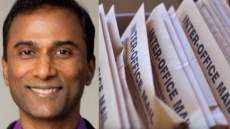PYONGYANG, Korea, Democratic People's Republic Of — North Korea has officially announced it is blocking Facebook, YouTube, Twitter and South Korean websites in a move underscoring its concern with the spread of online information.
The Ministry of Posts and Telecommunications announcement was posted this week at the country's main mobile service provider, Koryolink, and other places serving Internet users.
Very few North Koreans have Internet access. Typically they can see only a sealed-off, government-sanctioned intranet. But foreigners had previously been able to surf the Web with almost no overt restrictions, though most likely with behind-the-scenes monitoring of their Internet activities.
The new restrictions will make it more difficult for visitors or the small community of foreign residents in North Korea to post real-time information about the country to the outside world, and will further limit the ability of North Koreans with Internet access to view information about their country posted elsewhere.
The government announcement named YouTube, Facebook, Twitter, Voice of America and South Korean media sites as specific examples of what it is blocking "for a certain period of time."
It also said gambling and "sex and adult websites" have been blocked.
Facebook and Twitter had been informally blocked for months and could not be accessed Friday in a Web search from Pyongyang.

The announcement added that anyone who tries to hack onto such sites, access them in an "improper" way or distribute "anti-republic data" from them will be subject to punishment under North Korean law. It did not say what the punishment would be.
The new North Korean restrictions are similar to Internet censorship in neighbouring China, which allows more access in general but also maintains strict bans on sites that Beijing deems politically sensitive or socially harmful.
They also mirror some restrictions in South Korea, which, despite being one of the world's most Internet-crazy countries, also bans North Korean websites and a wide variety of what the government deems to be adult content.
It is estimated that more than 2 million North Koreans now use mobile phones, but with few exceptions access to the Internet is limited to officials, technicians or others who have special permission to use it, usually under close supervision.
North Korea decided in 2013 to allow foreigners in the country to use 3G on their mobile phones, which generally require a local SIM card to get onto the Koryolink mobile carrier network.

That opened the door for them to surf the net and to post to social media such as Facebook, Twitter and Instagram. More recently, even live-streaming video had been posted using the new Twitter app Periscope.
But Pyongyang, looking to maintain control over the flow of news getting out and concerned that local people may have also been finding ways onto the Web, has been quietly experimenting with Internet controls for some time.
In June last year, warnings began appearing on Instagram accounts in North Korea that claimed access to the popular photo-sharing app was being denied for "harmful content." Access to other sites was also denied with a screen notification saying, "Warning! You can't connect to this website because it's in blacklist site."

Instagram was not on the new list of officially banned sites and was functioning normally.




